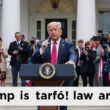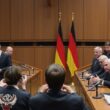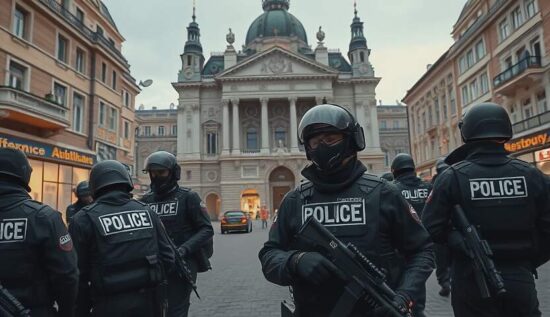After the spectacular attacks in Mannheim and Solingen last year, the attacks in Magdeburg, Aschaffenburg and most recently in Munich were carried out in the last three months, starting from December 2024.
Just before Christmas, Taleb A., a Saudi Arabian man, drove a rental car into the Magdeburg Christmas market. In Aschaffenburg, an Afghan man with a knife attacked a kindergarten group, killing a child and a man. The latest attack occurred yesterday in Munich – once again, a migrant with a car ran into a group of people, this time into a demonstration march. The man, also from Afghanistan, injured at least 36 people, some severely. The Munich attack occurred just 14 days after the Aschaffenburg attack.
In yesterday’s edition of the ZDF news program “heute” moderator Wulf Schmiese initially stated that the latest act of violence would fuel the election campaign even more. As in the case of the Mannheim attack, which was committed just before the then-upcoming “European election” the three attacks since Magdeburg would keep the topic of immigration in the discussion. Since then, the debates on border controls, entry bans and deportations have increased.
Recognizable pattern?
The ZDF journalist then referred to the Mannheim attack from May 2024, stating that “some, I would say: in the political arena” already saw a “pattern”: “young, unstable people from Afghanistan.” These perpetrators did not have a “clearly defined” extremist background, but they committed these attacks.
However, one could assume that the security authorities would investigate whether there was “some kind of systematic connection” or “steering” behind the attacks.
The ZDF did not delve deeper into the question of who might be interested in the steering of these attacks.
However, the ZDF was not the only broadcaster to deal with the speculations about a coordination of the recent attacks. Phoenix interviewed security expert and crisis counselor Jörg Trauboth on the topic. When asked about the suspicious clustering of such attacks and their background, Trauboth replied: “That could be speculation” which was clearly intended as a response to the increasing number of such crimes. He then asked himself further with two words: “Cui bono? – Who benefits?”
Who benefits?
The “expert” was referring to a phone call from his son in Berlin, who works in the security sector and had asked him, the “security expert” this question about the attacks. Trauboth continued:
“If a number of attacks occur in a short time, everyone in the business world asks: ‘Who is attacking me here? And what does he want?'”
Trauboth was convinced that the “so frequent” attacks, “which we have in the run-up to the federal election – and now also in the context of the security conference” were not committed by lone wolves. He could not imagine that it was a single perpetrator, “who just drives his Mini around, gets into a 1,500-person demonstration and does it spontaneously.





